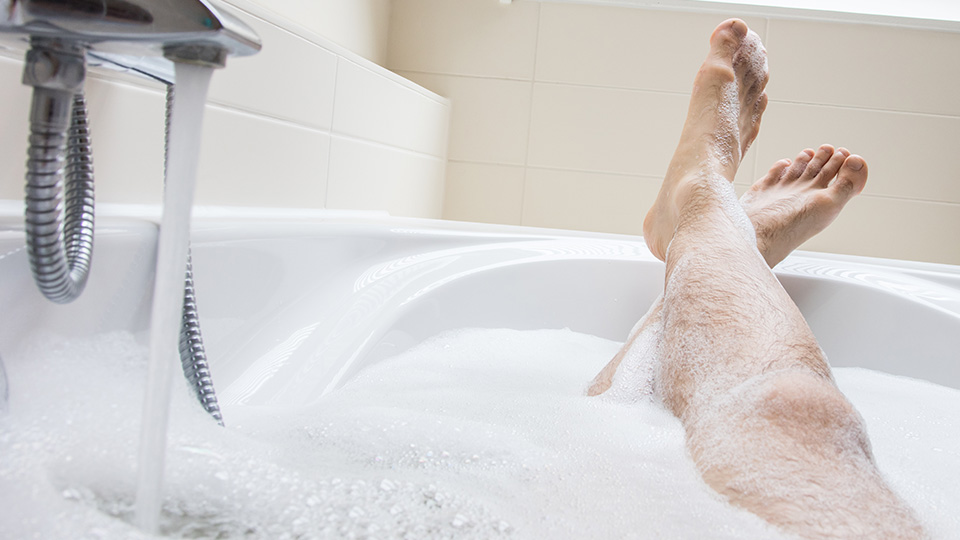‘The acute and chronic effects of hot water immersion on inflammation and metabolism in sedentary, overweight adults’ was led by PhD student Sven Hoekstra, under the guidance of Dr Christof Leicht and Dr Lettie Bishop, of the School of Sport, Exercise and Health Sciences (SSEHS).
The findings of the study – which also features research undertaken by SSEHS’s Dr Stephen Bailey and Nottingham Trent University’s Dr Steve Faulkner – have been published ahead of print in the Journal of Applied Physiology.
The researchers studied markers of inflammation and blood sugar and insulin levels in a group of sedentary, overweight men.
Physical stress such as exercise can cause the short-term elevation of inflammatory markers. After exercise, the level of an inflammatory chemical (IL-6) rises.
In a process called the ‘inflammatory response’, this activates the release of anti-inflammatory substances to combat unhealthily high levels of inflammation, known as chronic low-grade inflammation.
Recent research has shown that raising body temperature augments the acute inflammatory response, which provides a rationale for identifying exercise alternatives that reduce low-grade inflammation in the body.
Previous studies have also found a connection between a spike in body temperature and nitric oxide production, a substance that aids blood flow and helps carry glucose throughout the body.
The volunteers in the Loughborough-led study participated in both hot-water immersion and ambient room temperature (control) trials separated by at least three days.
The researchers took a resting blood sample after the participants had rested in a 27-degree C room for 15 minutes. After the rest period, the participants either remained seated in the room or entered a hot water bath for 60 minutes.
In the hot water trial, the volunteers sat immersed up to their neck in 39-degree C water. The research team measured the men’s heart rate, blood pressure and body temperature every 15 minutes throughout both the control and immersion conditions. Blood samples were taken again immediately after and two hours after each session.
The researchers found that a single hot-water immersion session causes the elevation of plasma Il-6 concentration and increased nitric oxide production, but did not change the expression of heat shock protein 72 – another protein suggested to be important for health.
However, a two-week treatment period in which the men participated in daily hot water baths showed a reduction of fasting blood sugar and insulin levels as well as improved low-grade inflammation at rest.
The men reported a level of discomfort during the hot water immersion trial, which could be due to the high temperature of the water or the length of time they were required to remain immersed.
The researchers acknowledge that these conditions may make it difficult for people to commit to this type of alternative treatment.
However, the positive results of decreased inflammation and improved insulin sensitivity suggest that hot-water immersion may “improve aspects of the inflammatory profile and enhance glucose metabolism in sedentary, overweight males and might have implications for improving metabolic health in populations unable to meet the current physical activity recommendations”, say the researchers.
Commenting on the study, Sven Hoekstra said: “As the research on passive heating to improve cardiometabolic health is still in its infancy, this study provides strong rationale to continue the work on a treatment that may provide an alternative for people restricted from engaging in physical activity.
“It is encouraging that a leading journal in the field of exercise physiology, the Journal of Applied Physiology, acknowledges its potential by publishing our work.
“In the future, we hope to extend this research to populations that may most benefit from passive heating interventions, such as the elderly or people with disabilities that restrict them from engaging in exercise.”
You can read ‘The acute and chronic effects of hot water immersion on inflammation and metabolism in sedentary, overweight adults’ here.
